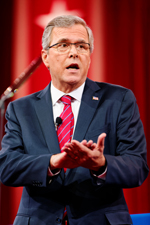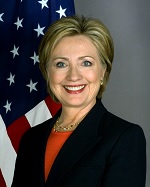 |
| Jeb Bush |
Democratic presidential candidates have been railing against skyrocketing drug prices, unveiling proposals and in some cases, rolling out legislation to combat them. Now, amid growing public backlash over the issue, Republican presidential hopefuls are starting to jump into the fray with their own plans to rein in pricing.
Unsurprisingly, Republican candidates are taking a more measured approach than Democrats, sticking to old plans like reforming the FDA and increasing research funding. Former Florida governor Jeb Bush has been the most vocal with his pricing proposals, rolling out a healthcare plan last month that included some old ideas like changing the FDA's regulatory pathways to get new drugs approved more quickly. "If we started from scratch with the FDA, I promise you we would be a less costly system that would take a lot less time," Bush said last month in a speech detailing his plan, as quoted by Stat.
Sen. Ted Cruz (R-TX) is also targeting the FDA as part of his plan, saying last month that he would introduce a Senate bill that would speed up approval for drugs that have already been approved in other countries and beef up a partnership between the NIH, the FDA and biopharma companies focused on developing treatments for conditions such as Type 2 diabetes and Alzheimer's.
Other Republican candidates such as New Jersey Governor Chris Christie are plugging an even more hands-off approach. Allowing companies to reap investments spurs innovation, Christie said in response to Democratic front-runner Hillary Clinton's prescription drug plan. The "best way" to control prices "is to make it transparent and stop paying fee-for-service," Christie said last month, as quoted by Stat.
But a rising tide of public discontent is likely to spur a more interventionist approach before the campaign ends. In October, the Kaiser Family Foundation released a new poll showing that 77% of people surveyed regardless of their political party said that drug prices were their top health concern. And another Kaiser poll found that a majority of Republicans would support tougher policies like allowing Medicare to negotiate prices with drug companies and setting price caps for expensive meds--proposals that Democratic candidates often cite in their plans.
"It's not clear to me that 'Reform the FDA' is going to be enough as part of their platform," Yevgeniy Feyman, deputy director at the Center for Medical Progress at the Manhattan Institute for Policy Research, told Stat. "Even the Republican plans are probably going to include a little bit (of) government intervention."
 |
| Hillary Clinton |
Meanwhile, Democratic candidates are calling for more government intervention with aggressive plans to fight price hikes. In September, Clinton rolled out a plan that would limit consumers' deductibles for drugs, allow Medicare to negotiate costs with drugmakers and let Americans buy drugs from other countries with lower prices.
Vocal pricing critic and Democratic presidential hopeful Sen. Bernie Sanders is also pushing back at the industry, introducing a drug pricing bill in September that would give the government the power to directly negotiate drug prices. The bill also includes some new measures such as full disclosure of R&D and manufacturing costs and pricing of drugs in other countries.
- read the Stat story
Special Reports: The top 10 most expensive drugs of 2013 | 10 big brands keep pumping out big bucks, with a little help from price hikes